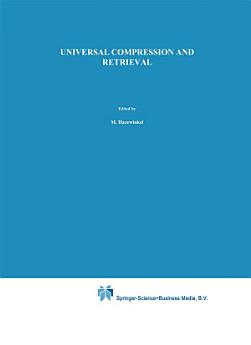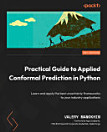Universal Compression and Retrieval
R. Krichevsky
Mar 2013 · Mathematics and Its Applications Book 274 · Springer Science & Business Media
eBook
224
Pages
reportRatings and reviews aren’t verified Learn more
About this eBook
Objectives Computer and communication practice relies on data compression and dictionary search methods. They lean on a rapidly developing theory. Its exposition from a new viewpoint is the purpose of the book. We start from the very beginning and finish with the latest achievements of the theory, some of them in print for the first time. The book is intended for serving as both a monograph and a self-contained textbook. Information retrieval is the subject of the treatises by D. Knuth (1973) and K. Mehlhorn (1987). Data compression is the subject of source coding. It is a chapter of information theory. Its up-to-date state is presented in the books of Storer (1988), Lynch (1985), T. Bell et al. (1990). The difference between them and the present book is as follows. First. We include information retrieval into source coding instead of discussing it separately. Information-theoretic methods proved to be very effective in information search. Second. For many years the target of the source coding theory was the estimation of the maximal degree of the data compression. This target is practically bit today. The sought degree is now known for most of the sources. We believe that the next target must be the estimation of the price of approaching that degree. So, we are concerned with trade-off between complexity and quality of coding. Third. We pay special attention to universal families that contain a good com pressing map for every source in a set.
Rate this eBook
Tell us what you think.
Reading information
Smartphones and tablets
Install the Google Play Books app for Android and iPad/iPhone. It syncs automatically with your account and allows you to read online or offline wherever you are.
Laptops and computers
You can listen to audiobooks purchased on Google Play using your computer's web browser.
eReaders and other devices
To read on e-ink devices like Kobo eReaders, you'll need to download a file and transfer it to your device. Follow the detailed Help Centre instructions to transfer the files to supported eReaders.







